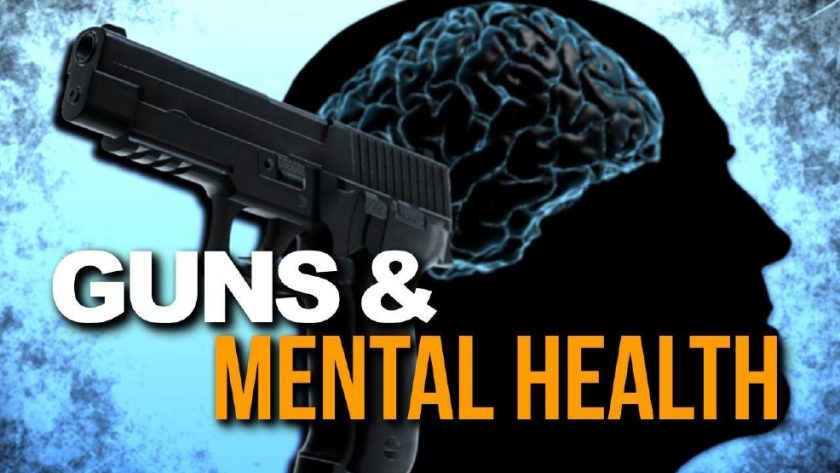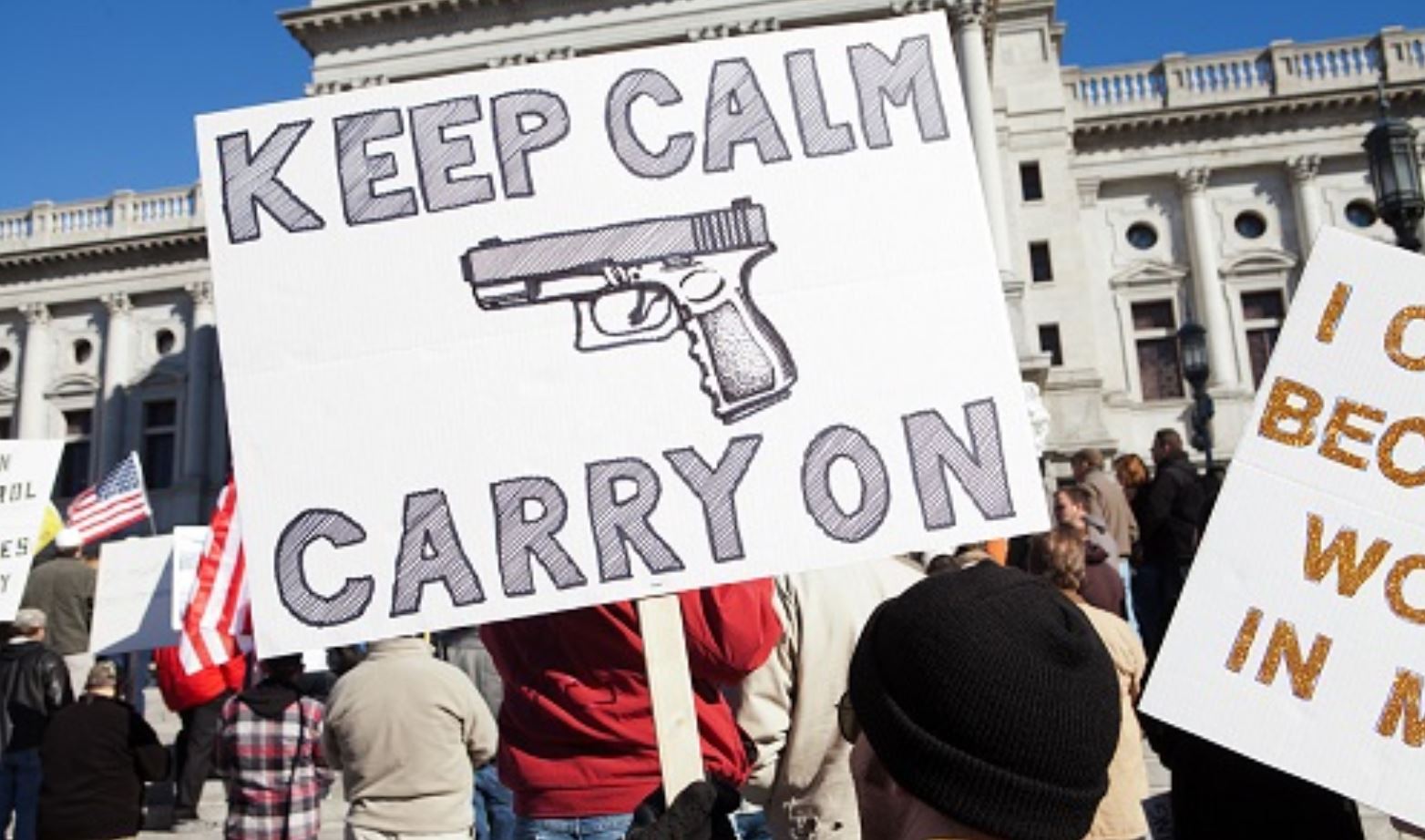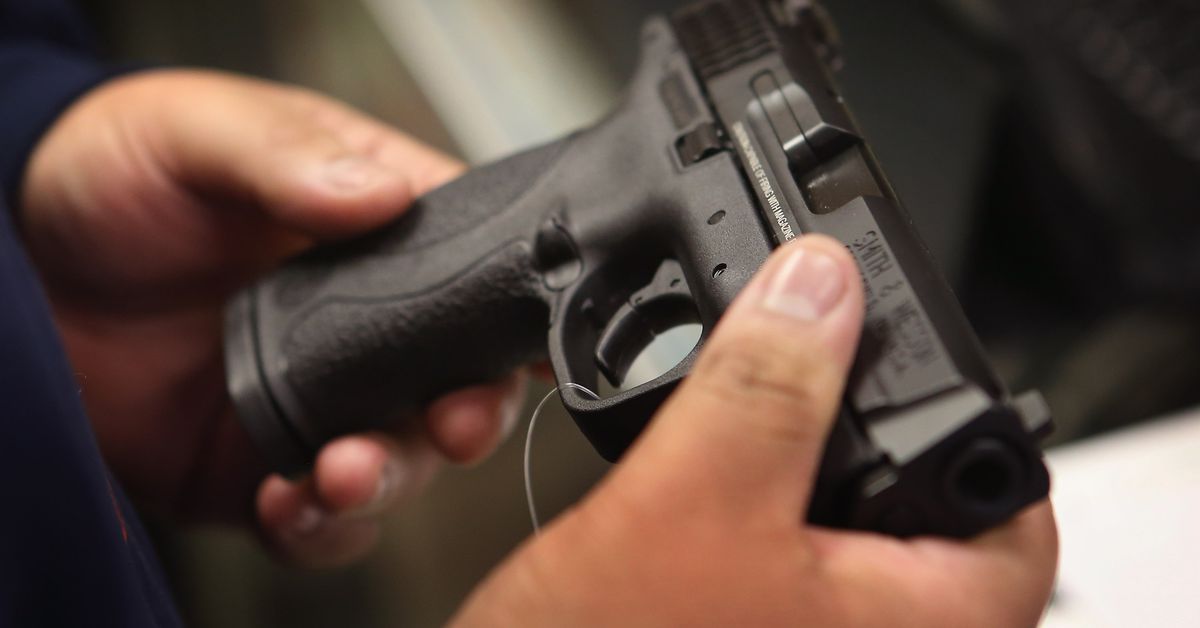You Can Buy a Gun But Not Mental Health
You can buy a gun but not mental health—this stark reality highlights a critical disparity in American society. While acquiring a firearm often involves a relatively straightforward process, accessing affordable and effective mental healthcare can be a significant hurdle for many. This disparity raises serious questions about public safety, societal attitudes towards mental illness, and the effectiveness of current legislation.
We’ll explore the complexities of this issue, examining the ease of gun acquisition compared to the challenges of obtaining mental health services, and considering potential solutions to bridge this dangerous gap.
The contrast between readily available firearms and the often-difficult path to mental healthcare is striking. The process of purchasing a gun varies by state, but generally involves a background check and, in some cases, a waiting period. Conversely, securing mental healthcare often involves navigating insurance complexities, finding affordable providers, and potentially facing long wait times for appointments. This difference in accessibility underscores a fundamental imbalance in our societal priorities and raises serious concerns about public safety and individual well-being.
The Stark Contrast: Gun Acquisition vs. Mental Healthcare Access in the US: You Can Buy A Gun But Not Mental Health
The United States presents a paradoxical situation: acquiring a firearm is often significantly easier than accessing adequate mental healthcare. This disparity highlights a critical flaw in the nation’s approach to public safety and well-being. This article explores the contrasting processes involved in obtaining a firearm versus receiving mental healthcare, examining societal perceptions, legislative frameworks, and potential solutions to bridge this dangerous gap.
Gun Acquisition vs. Mental Healthcare Access Processes

The process of purchasing a firearm varies by state, but generally involves a background check and, in some states, a waiting period. In contrast, accessing mental healthcare often involves navigating insurance complexities, finding a provider, scheduling appointments, and potentially facing long wait times. The regulatory differences are stark. Purchasing a gun is primarily regulated at the federal and state level, focusing on background checks and age restrictions.
Mental healthcare access, however, is influenced by a complex interplay of federal and state regulations, insurance coverage, and the availability of providers.
For example, in the state of California, purchasing a handgun involves completing a Department of Justice application, passing a background check, and waiting a 10-day period before taking possession. This contrasts sharply with seeking mental health treatment from a private provider, which could involve researching providers, verifying insurance coverage, scheduling an initial consultation (often weeks out), and then navigating ongoing appointments and potential co-pays.
Financially, the cost of a firearm can range widely, but a basic handgun can be purchased for a few hundred dollars. Mental healthcare, however, can be prohibitively expensive, even with insurance. Many individuals face high deductibles, co-pays, and limited coverage for therapy sessions, medication, and hospitalization.
Societal Attitudes Towards Gun Ownership and Mental Illness
Societal attitudes towards gun ownership and mental illness are often deeply ingrained and contradictory. While gun ownership is frequently viewed as a constitutional right and a symbol of self-reliance, mental illness often carries a stigma of weakness, unpredictability, and danger. This dichotomy creates a climate where open discussions about mental health are often discouraged, while the right to bear arms is fiercely defended.
Media portrayals often reinforce these biases. Gun ownership is frequently depicted in a romanticized or heroic light, while individuals with mental illness are often portrayed as violent or unstable. These stereotypes fuel misconceptions and contribute to the stigmatization of mental health issues.
Consider the narrative of Sarah, a young woman struggling with anxiety and depression. Fear of judgment prevents her from seeking professional help, even though her anxiety is escalating. She isolates herself, worsening her condition. The societal stigma prevents her from accessing the support she desperately needs.
Analysis of Current Legislation and Policy Proposals, You can buy a gun but not mental health

Federal and state laws regarding firearm purchases and mental healthcare access are often inconsistent and create loopholes. The background check system for firearm purchases, while intended to prevent individuals with certain criminal histories from acquiring weapons, does not always effectively address individuals with untreated mental illness. Simultaneously, many states lack adequate funding for community mental health services, leading to limited access to care.
A hypothetical policy proposal could involve increased funding for community-based mental health programs, coupled with improved integration of mental health screening into the firearm purchasing process. This could involve a system where individuals could voluntarily seek mental health evaluations, without jeopardizing their right to own firearms, but with appropriate interventions if needed. This approach would focus on early intervention and support, rather than solely on restriction.
Comparing gun control legislation across states reveals a wide spectrum of approaches. Some states have stricter background checks and waiting periods, while others have more permissive laws. The impact on mental health services, however, is often indirect, and the correlation between stricter gun control and improved mental health access isn’t always clear.
Fictional Narratives and Hypothetical Scenarios
Imagine John, a veteran struggling with PTSD and depression. He legally owns a firearm for protection, but his untreated PTSD triggers episodes of intense anxiety and anger. His access to firearms, combined with his untreated mental health condition, creates a potentially dangerous situation, both for himself and others. This scenario highlights the importance of accessible and effective mental healthcare for individuals who own firearms.
Several hypothetical scenarios could illustrate the interaction between mental health issues and responsible gun ownership. For example, a scenario could depict an individual experiencing a psychotic break, accessing their firearms, and the potential for harm. Another scenario could illustrate an individual seeking help for their mental health concerns and voluntarily relinquishing their firearms temporarily, highlighting responsible gun ownership practices.
Inadequate mental healthcare access for individuals who own firearms can lead to a range of devastating consequences, from self-harm and suicide to acts of violence against others. Early intervention and comprehensive treatment are crucial in mitigating these risks.
Public Safety Risks and the Importance of Proactive Interventions
Untreated mental illness in individuals with access to firearms poses a significant risk to public safety. While the relationship between mental illness and gun violence is complex and not straightforward, individuals experiencing untreated psychotic disorders or severe depression are at a higher risk of engaging in violence, including self-harm and harm to others.
Studies on gun violence related to mental illness highlight the difficulty in establishing direct causal links. Many factors contribute to gun violence, and mental illness is often only one factor among many. However, the available data suggests that proactive mental health interventions can significantly reduce the risk of gun violence. Early identification and treatment of mental health conditions, coupled with responsible gun ownership practices, are crucial.
Proactive mental health interventions, including early detection programs and increased access to treatment, are essential for preventing gun violence. These interventions should focus on addressing the underlying causes of violence, rather than simply focusing on restricting access to firearms.
Bridging the Gap: Potential Solutions

Bridging the gap between easy firearm acquisition and difficult mental healthcare access requires a multi-pronged approach. Increased funding for community-based mental health programs, coupled with initiatives promoting responsible gun ownership, are crucial. This includes promoting gun safety training, encouraging voluntary relinquishment of firearms during periods of crisis, and providing support for individuals seeking help.
Community-based mental health programs play a vital role in reducing gun violence by providing accessible and affordable care. These programs can offer early intervention, crisis intervention, and ongoing support, reducing the likelihood of individuals with mental illness engaging in violence. They also provide a crucial link to resources and support systems.
Initiatives promoting responsible gun ownership, such as gun safety courses and storage education, can also help reduce gun violence. These initiatives, when combined with improved access to mental healthcare, create a more comprehensive approach to public safety.
The stark contrast between the ease of acquiring a firearm and the difficulty of accessing mental healthcare in the United States demands immediate attention. While responsible gun ownership is a right, ensuring access to affordable and effective mental healthcare is equally crucial for public safety and individual well-being. Addressing this disparity requires a multi-faceted approach involving legislative reform, increased funding for mental health services, and a shift in societal attitudes towards mental illness.
Only through a comprehensive strategy that tackles both gun control and mental health access can we hope to create a safer and healthier society.
Share this content:
